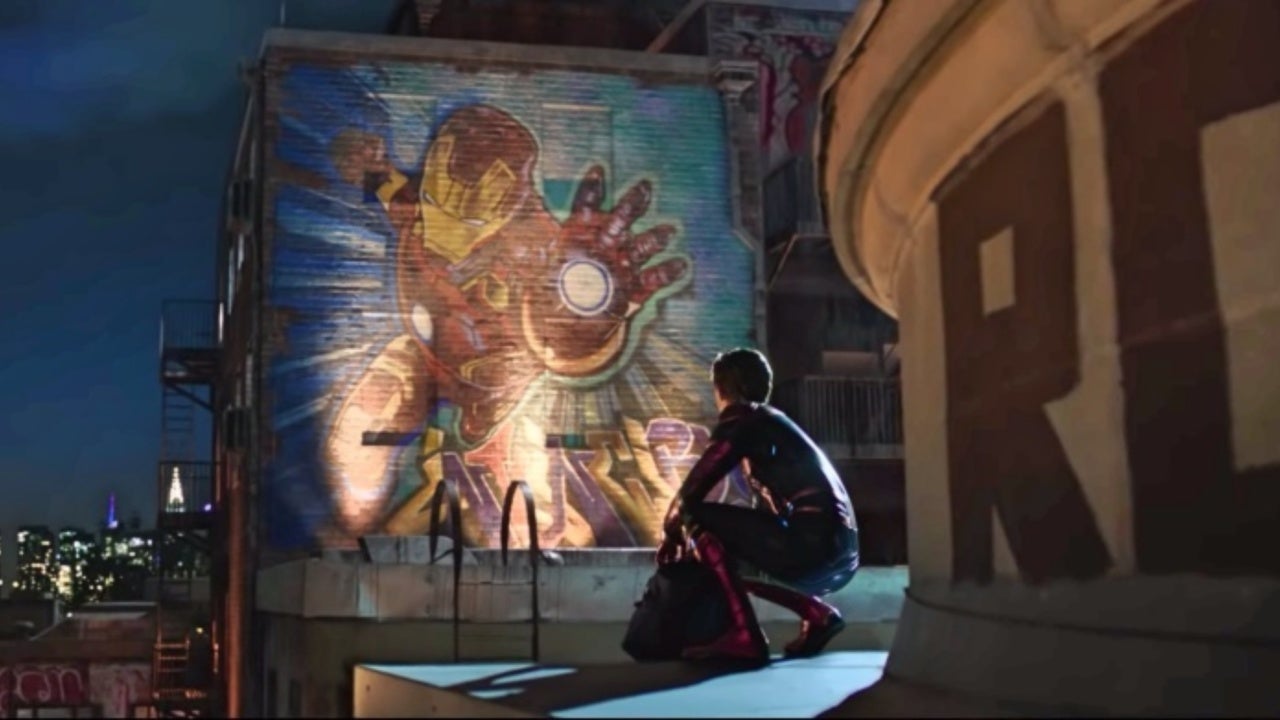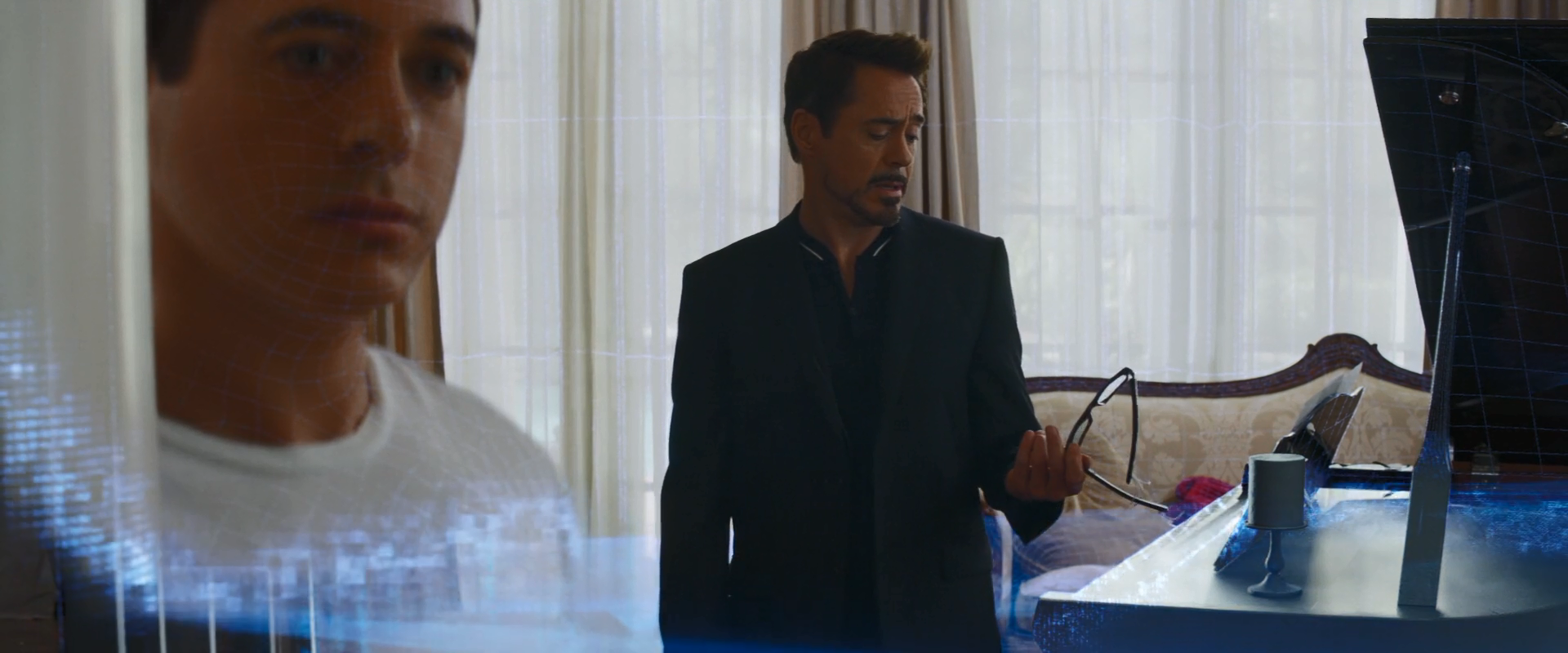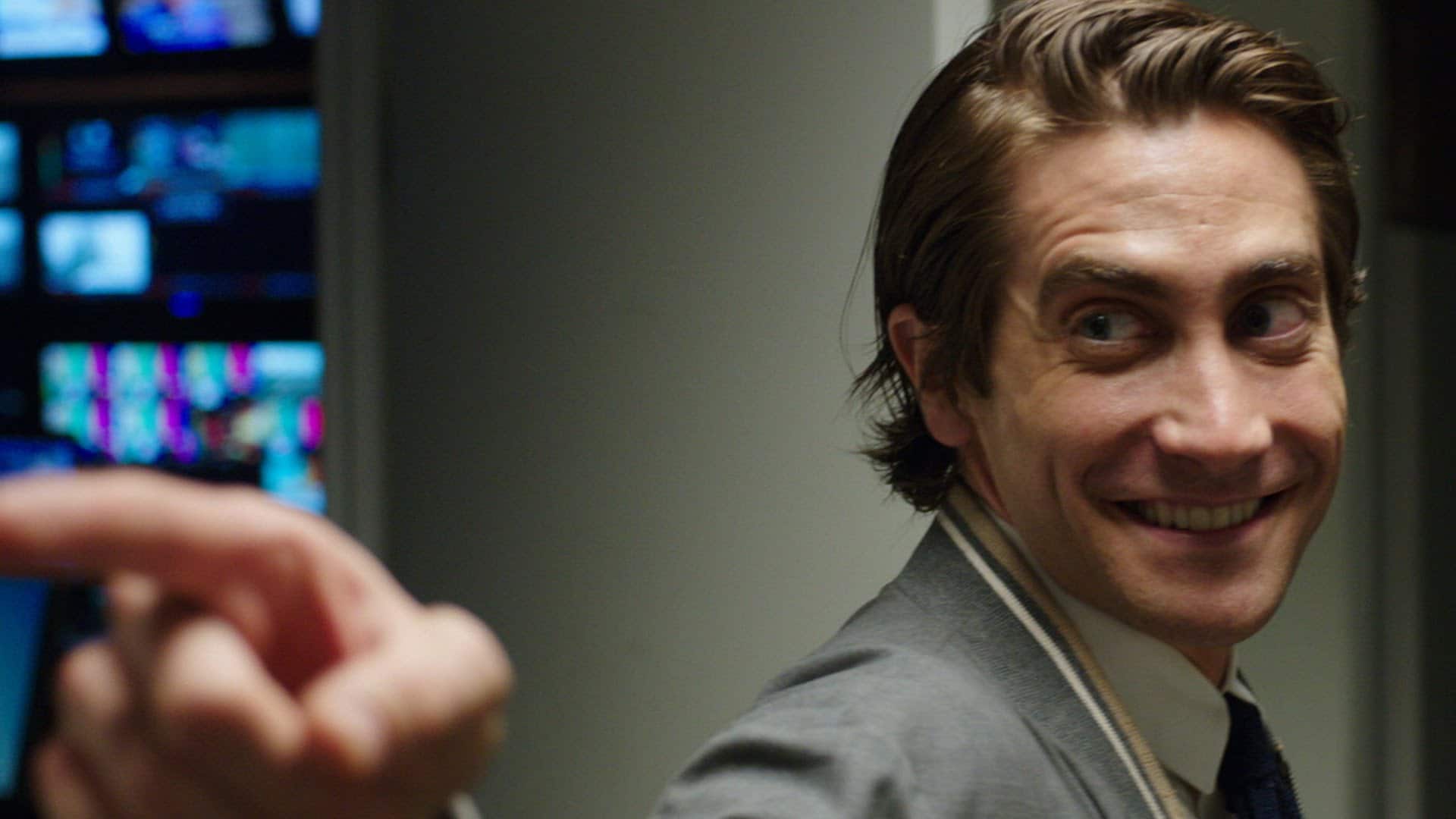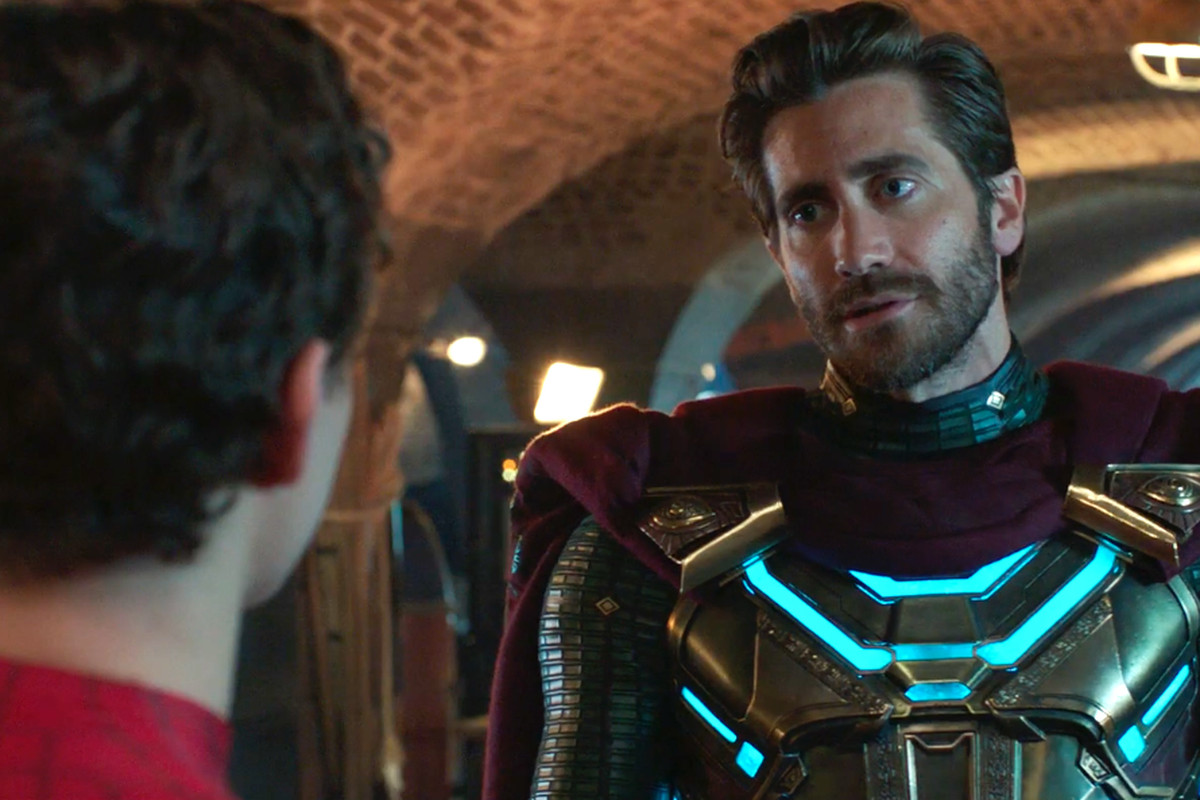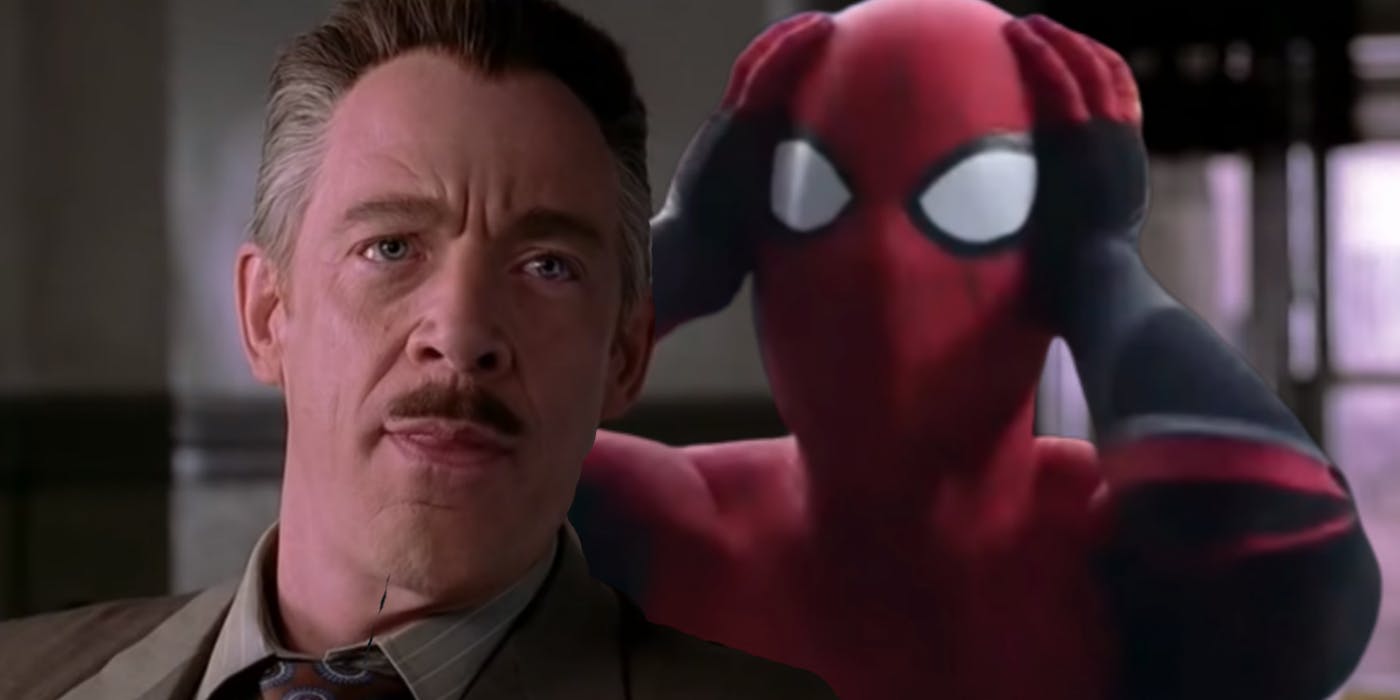Personally, I’ve never been a fan of Tom Holland’s Spider-Man and Far From Home didn’t change that one bit. That being said, Jake Gyllenhaal absolutely crushed it as the enigmatic Quentin Beck aka Mysterio. Oh and just in case you’re not familiar with Spider-Man mythos or just want to go into Far From Home with a clean palette: spoilers ahead. Mysterio is a villainous fraud, not unlike his comic book counterpart. In the comics, he’s kinda seen as a joke with his ridiculous fishbowl mask, except for the time he fooled Wolverine into murdering the whole X-Men in Old Man Logan but I digress. I didn’t really think much of the character. Frankly, I was irritated at some point with regards to how Disney could have wasted an actor of Gyllenhaal’s calibre on a B-grade villain like Mysterio. Never have I been so completely wrong because Far From Home might have given us one of the greatest, if not the most terrifying villain in the franchise so far.
A Prey Society
To truly understand the full extent of Spidey’s new nemesis and the power he wields, we must first comprehend the context of said power. Unlike Thanos’ universal decimation or Killmonger’s political ambition, the means in which Beck achieves his goals are far more insidious and subtle: soft power. Much like our own society, the cultural setting of Far From Home mirrors our growing sense of media performance, hyperconnectivity and obsession over self-image. All these terms can be chalked up to the concept of aesthetics.
Folks like German philosopher and political theorist Hannah Arendt saw this pageantry as an eventuality. For her, the reality isn’t dictated by some form of higher truth or Lacanian Real anymore, rather the only reality that truly matters is the one seen and heard. In a nutshell, we live in a performative society in which we as individuals labour to present more chiselled and fabricated versions of our true selves if there even is such a thing as that. In the past, our social positions in society were either built upon our religious identity or function within a political system. But with society becoming ever more disillusioned with traditional institutions, they are no longer qualified to give wider society any greater meaning. So while the structures that once held the theatre of life together have faded into antiquity or have been rendered obsolete, the show must go on! Where once we would find solace and absolution in the temple of the gods, we know sacrifice at the altar of social media. At the risk of sounding dramatic, god is now a democracy and honestly, it hasn’t always been for the best. People only seem to matter in relation to how others perceive us. While this isn’t necessarily anything new, the internet and our constant access to technology has created a hyperconnected environment which births new anxieties. We see this in Far From Home with Peter Parker as Spider-Man having the responsibility of becoming the new Iron Man foisted upon him. With superheroes becoming more prominent in the media, Peter finds himself struggling to “perform” the part. He’s unsure of himself and has constant external pressures pushing him into a mold he never asked for. On a lighter note, he also finds himself having to perform in front of Michelle (MJ), as seen in his plan to romance the young lady.
Much like a play with multiple acts, we see Peter attempt to stage an intimate connection with MJ through elaborate steps and planning. It doesn’t just stop at Peter, however. The film consistently hammers home this theme of hyperconnectivity and performance with Flash obnoxiously live streaming himself and people instinctively whipping their phones out at every turn to capture the ensuing chaos. Hell at some point, they enter into an actual theatre! In the wake of the events of Endgame, the world can seem scary and uncertain. Imagine if your entire existence hinges upon a gang of cape-wearing crusaders restoring normalcy and security to your way of life. Your physical life is no longer in your hands! The only control over reality we can exert is how the world perceives us through careful self-management and media control.
At the same time, people are hungry for any semblance of true, authentic reality, also known as the Real. People are looking for a narrative or a personality big enough to satiate their existential dread and give them the security they need. They’re crying out for a saviour as seen with the many shrines made in honour of Iron Man. Where heroes see this need in people as a calling, opportunists like Beck see them as prey.
The Predator in Performance
Seriously, it seems like wherever Tony goes, he can’t help but make at least one enemy. One of the many in a long list just so happens to be one Quentin Beck, a brilliant techwiz who managed to master the art of holographic rendering. His technology enabled him to create revolutionary lifelike projected holograms. Too bad Stark decided to use it as a form of therapy and christened the system with the algorithm B.A.R.F. much to the laughter of the masses. Beck, determined to have the last laugh, recruited a number of other disgruntled Stark employees to join him on his quest to create their own Iron Man replacement. He knew that with the world mourning the death of their beloved hero Iron Man, they’d be crying out for a new icon to take his place. He might have made Beck feel small in the past but now it’s his time to shine! Beyond being a master of illusions, Beck is also a commendable performer. In spite of the fact that we all saw Mysterio being a bad guy miles away, I couldn’t help but be engaged with Beck’s performance. I wanted to believe that Beck was a good guy but somewhere deep within I knew he had ill intentions. Much like the way we have been conditioned to perceive reality through the lens of aestheticism, most of the audience was fooled into believing Beck. This deception doesn’t merely stop at the screen though but extends all the way out into the very marketing of the film. We all had a stake in believing Beck’s reality. Plenty of people fell for his multiverse backstory hook-line-and-sinker because they wanted to see a cinematic multiverse. Now that is some next level meta-marketing shit right there! For most of the film, this idea of hyperconnectivity and performance is played for either comedic effect or character development, except when it comes to Beck. There’s something insidious and quite terrifying with what drives Beck’s designs. Desperation that goes beyond the archetypal revenge plot or vain dreams of glory. He’s fueled by the same fear and anxiety that plagues the very people he tries to persuade. Funnily enough, Beck reminds me of another character Gyllenhaal has played in the past: Lou Bloom from 2014’s Nightcrawler.
In the film, Lou is a sociopathic entrepreneur who is willing to compromise any and all morals to achieve his target and goal of becoming a successful stringer. Stringers are people who are cameramen at the scene of a particular event. Lou feeds off the misery and suffering of victims in violent crimes and horrific accidents to further his career and goals. The climax of the film sees him set up and film a violent shootout that erupts in a car chase before having his friend killed on camera. This is his twisted magnum opus. How does society respond to it, you ask? He is rewarded with the fame, wealth and recognition. At the end of the day, as long as the bottom line and the cultural agenda is furthered, the casualty of truth and human worth does not matter. Though Gyllenhaal seems slightly more human and relatable in Far From Home, it’s hard not to draw parallels between Quentin Beck and Lou Bloom. The only true difference between these two men is that Beck dared to dream bigger. Beck realizes the power he wields with his illusions, holograms and his ability to manipulate the media. In a world in which appearance dictates reality, Beck fundamentally controls and warps reality. Much like Arendt, Beck believes that ultimately the core of our ever growing performative culture is hollow, it’s essentially meaningless until given form. For him, there’s no real grand, moralistic design, just a never ending performance in the name of justifying his own existence.
On a certain level, it’s quite human and on another it’s downright terrifying. In the pursuit of fabricating narratives and realities to alleviate our anxieties and satiate our desire for self actualization, we ironically compromise on the sanctity of human life to achieve this effect. So is that the message from Far From Home? That the Quentin Becks and Lou Blooms of this world are the true masters of a bleak and pointless existence? Well, not exactly. Far From Home does establish that there is some semblance of authenticity in its world. Its message being that in the face of confrontation and adversity, we are our truest selves. When Peter is confronted by MJ about him being Spider-Man, we see his insecurity and fears bubble to the surface. After getting his ass absolutely beaten and having his entire world thrown into question by Beck, Spidey finds his centre. From there, he is able to see through Beck’s illusion using his “Peter Tingle” (or Spidey Sense). Yet in spite of the possibility of an authentic reality existing within the fabric of society, I’ve got to admire Disney’s Marvel stance on the subject: It doesn’t matter because no one cares. I shan’t forget Beck’s chilling final words, “People need to believe in and they’ll believe in anything.” That line is seriously amazing. At first I thought that Beck was pulling some half ass redemption bullshit with him telling Spidey that people need a symbol to believe in, even if it is a noble lie. Then we hear his voice change from somber to almost crazed as he finishes his final words with a cynical taunt. Oh but it’s not over yet. Like The Dark Knight’s Joker, Mysterio has one last trick up his sleeve. In the mid credits scene of Far From Home, we see a broadcast of Beck telling the whole world that Spider-Man is the one responsible for the multiple drone attacks and with careful editing, he manages to frame the wallcrawler. The Daily Bugle’s J. Jonah Jameson (awesomely played by J.K. Simmons) further purports this story, officially branding Spider-Man as a public menace. And in a shocking turn of events, he then proceeds to reveal to the whole world that Peter Parker is in fact Spider-Man! In one final act of cruelty, he has triumphed over Spider-Man. Even if there is truth, a greater lie will prevail. He has robbed Peter of any hopes of a life within his control or choice. He has turned the world predator and Spider-Man into prey. I’ve been critical of the MCU in the past and by no means am I a fan, so believe me when I say that Mysterio has got to be one of the greatest villains in the comic book film genre. Not since Heath Ledger’s Joker have I seen a villain so timely, so relevant and so emblematic of our time. Even now, we can see the Quentin Becks in our own reality with narcissistic sociopaths like Logan Paul and Donald Trump. In a world full of uncertainty and disillusionment, we require grander and grander illusions to hold our reality together. I fear Far From Home will be a prophecy of the world to come where liars are seen as heroes, and truth will be viewed as an inconvenience, if not wholly irrelevant.


